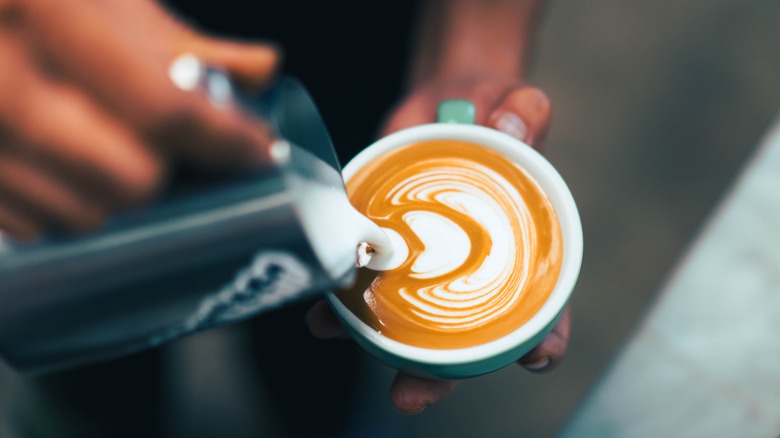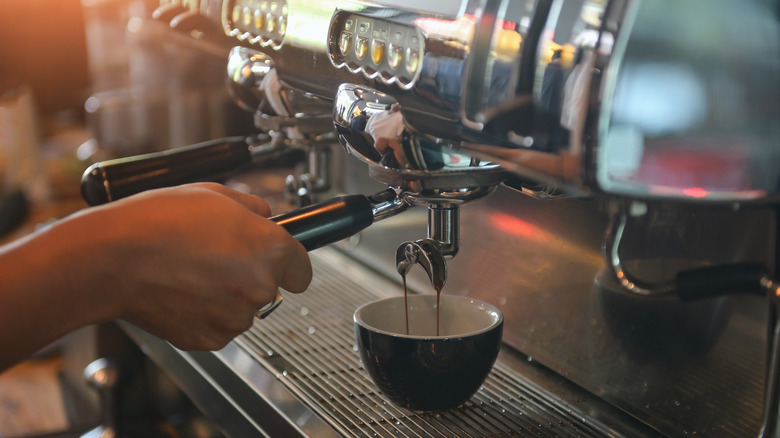What Does It Take To Become The World's Best Barista?
Waltz into almost any coffee shop and you'll find a slew of workers concocting a variety of beverages. Maybe it's a creamy mocha coffee. Or perhaps it's an iced or blended drink for scorching hot days. Whatever the drink may be, there's always a trained expert, called a barista, who will balance such an order with just the right levels of sweetness, flavored notes, and maybe even some extra whipped cream on top.
Not only do baristas have to memorize and make such caffeinated and non-caffeinated beverages, but their work duties also extend to cleaning, stocking, and communicating with customers, via Workable. But what exactly makes a barista truly stand out? Does it really come down to their incredible memory skills? Or do they need to have a blend of technical and creative flair? And does presentation actually matter when serving coffee? The answer is yes to all of these, and for that, we must venture out to the World Barista Championship.
The World Barista Championship is one of seven world coffee championships that falls under the World Coffee Events organization, via the SCA. The first competition took place in Monte Carlo in 2000, and ever since then, the best baristas from around the world make their very best coffee drinks to achieve the title of "World Barista Champion," per WBC. Here's what goes on behind the competition doors.
12 drinks to make
Baristas are required to prepare a total of 12 drinks, and World Barista Championship equates this to "four espressos, four milk drinks, and four original signature drinks." All of the drinks are then judged on several factors, like creativity and taste.
Here's where that memory part of a barista comes into play. There are lots of rules and regulations that each competitor must follow, ranging from station layouts and equipment/supplies to competition procedures and precise beverage definitions. For instance, when a barista serves a milk beverage to a judge, they must also present a napkin and unflavored water to prevent their score from being docked. Or, for the espresso portion, baristas can't use any flavorings and must serve the espresso in a "60 to 90 mL vessel," per the 2022 Rules & Regulations.
Specifics on what the judges are looking for can be found in the sensory and technical scoresheets. The sensory one mainly emphasizes taste, as well as presentation, creativity, and customer service skills. The technical scoresheet highlights cleanliness, product waste, and of course, technical skill when preparing each beverage.
So what does it take to become the world's best barista? Perfectly-crafted beverages. Originality. Memorization skills. Cleanliness. And though these qualities are certainly heightened for world-class baristas, these can also be found within any barista at any coffee shop.

